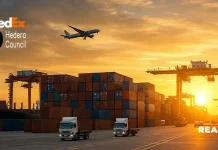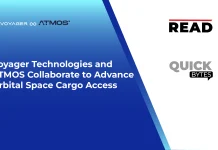IBM has launched the latest cohort of its Impact Accelerator programme, this time focusing squarely on the supply-chain sector. As part of this initiative, five mission-driven organisations have been selected to use IBM’s AI, hybrid-cloud and analytics platforms to modernise logistics, fleet operations, industrial value chains and energy-water-food systems.
The move comes amid growing urgency in the Supply Chain industry: recent research from EY found only 3% of supply-chain executives claimed to operate mostly autonomous supply chains in 2024-even though 35% expect to achieve that by 2030.
What the Accelerator Will Do
Through this initiative, IBM will grant its technology, use its Garage methodology and partner with consultancy and services firms (e.g., EY and ServiceNow) to support selected organisations across several fronts:
-
One project will work with fleet-management operations in Saudi Arabia using Constrained Hierarchical Multi-Agent Reinforcement Learning (CH-MARL) to optimise truck and port-equipment operations, reduce idle time and cut fuel use.
-
Another will develop a “data room” for energy-water-food supply-chain resilience in Indonesia and the Marshall Islands, integrating cross-domain data and analytics.
-
There is also a forestry-value-chain initiative in Canada, and a digital-readiness assessment tool for SMEs in Latin America, built in partnership with UNIDO.
-
A further project will map rooftop and ground-mounted solar systems in India (and later Kenya) via satellite imagery to feed into smart energy-access planning.
Each participating organisation enters a two-phase programme: first a co-design phase via IBM Garage (with prototypes), then an implementation phase to build and measure impact.
Why It Matters for the Supply Chain Industry
This announcement has major implications for the supply-chain sector:
Bridging the Autonomy Gap Only 3% of firms operate mostly autonomous supply chains. Programs like this speed up the shift to self-driving, responsive logistics. Suppliers, manufacturers, and logistics operators face rising demands for real-time responsiveness and resilience.
Also Read: Ensurge and Corning Partner on Solid-State Microbatteries
AI Moves into Operational Supply Chain Layers This initiative goes beyond just analytics dashboards and demand-forecast tools. It focuses on agent-based modeling, real-time fleet optimization, and integrated multi-domain data. This shows a deeper change in how AI is used across supply chains-from planning to execution.
Sustainability and Resilience Become Core The selected ventures underline more than simply cost and rapidity. They want to cut emissions in logistics. They also aim to improve connections between energy, water, and food. Plus, they will map renewable energy assets to boost supply-chain infrastructure. The industry now views sustainability and resilience as key goals, not just rules to follow.
Ecosystem-Based Transformation IBM’s approach involves partners like nonprofits, governments, universities, and private companies. This shows that supply-chain transformation is not just an internal IT or operations issue anymore. Networked ecosystems, data sharing, cross-domain intelligence, and external collaboration are now key.
Impacts for Businesses Operating in the Supply-Chain Space
For companies involved in manufacturing, logistics, procurement, materials management or infrastructure, this development offers both opportunity and urgency:
Operational Improvements
-
AI tools help fleets make quick, smart choices. They cut idle time, improve asset use, and reduce waste.
-
Real-time data in logistics, energy, water, and materials helps manage risks. It also improves visibility.
-
Firms can use analytics and AI to track emissions. They can also adopt greener logistics models and optimize asset use. This leads to better sustainability outcomes.
Strategic Benefits
-
Early adopters of these technologies will surpass their competitors. They will be more resilient and agile, gaining a clear competitive edge.
-
New business models are emerging, with service-based logistics being one example. Additionally, smart asset monitoring and predictive maintenance networks are gaining traction.
-
Manufacturers driving digital transformation will depend on suppliers, logistics providers, and service companies as key partners. They are building AI-driven supply chains.
Challenges to Consider
-
Supply-chain operators must address data quality issues. They need to connect various systems, update outdated technology, and fill skills gaps. This is key for reaching data maturity.
-
Introducing AI, agent-based models, and digital twins needs shifts in culture, processes, and skills. So, effective change management is key.
-
Governance and trust are key when sharing data with partners. This means we must tackle privacy, reliability, security, and transparency issues.
-
To measure ROI, firms should align metrics with their transformation plans. They need strong business cases to fund AI investments. Focus on key indicators like cost, speed, resilience, and sustainability.
Looking Ahead
To capture value from this trend, supply-chain operators should focus on:
-
Building data-ready architecture: Unified data, cross-domain integration (logistics, energy, materials) and AI-accessible platforms.
-
Piloting Intelligent Supply-Chain Use Cases:
-
Asset Utilization Optimization
-
Logistics Routing
-
Autonomous Materials Flow
-
Digital Twin for Network Planning
-
-
Framing transformation around resilience and sustainability, not just cost-reduction.
-
Teaming up with tech vendors, universities, and government agencies boosts innovation and growth.
The supply-chain industry is changing. It’s moving from old linear models to networked, AI-enabled, and resilient systems. IBM’s Impact Accelerator marks a clear direction. It encourages firms to be more than just logistics providers. They should act as smart, adaptive networks.
Conclusion
IBM’s announcement marks a turning point. By applying its AI and hybrid-cloud capabilities to real-world supply-chain challenges through the Impact Accelerator, it signals that the future of supply-chain is digital, autonomous and resilient. For companies operating in this sector, the question is no longer whether to adopt AI-driven supply-chain solutions—but how quickly they can – and how effectively they can embed them into their operations and ecosystem.




